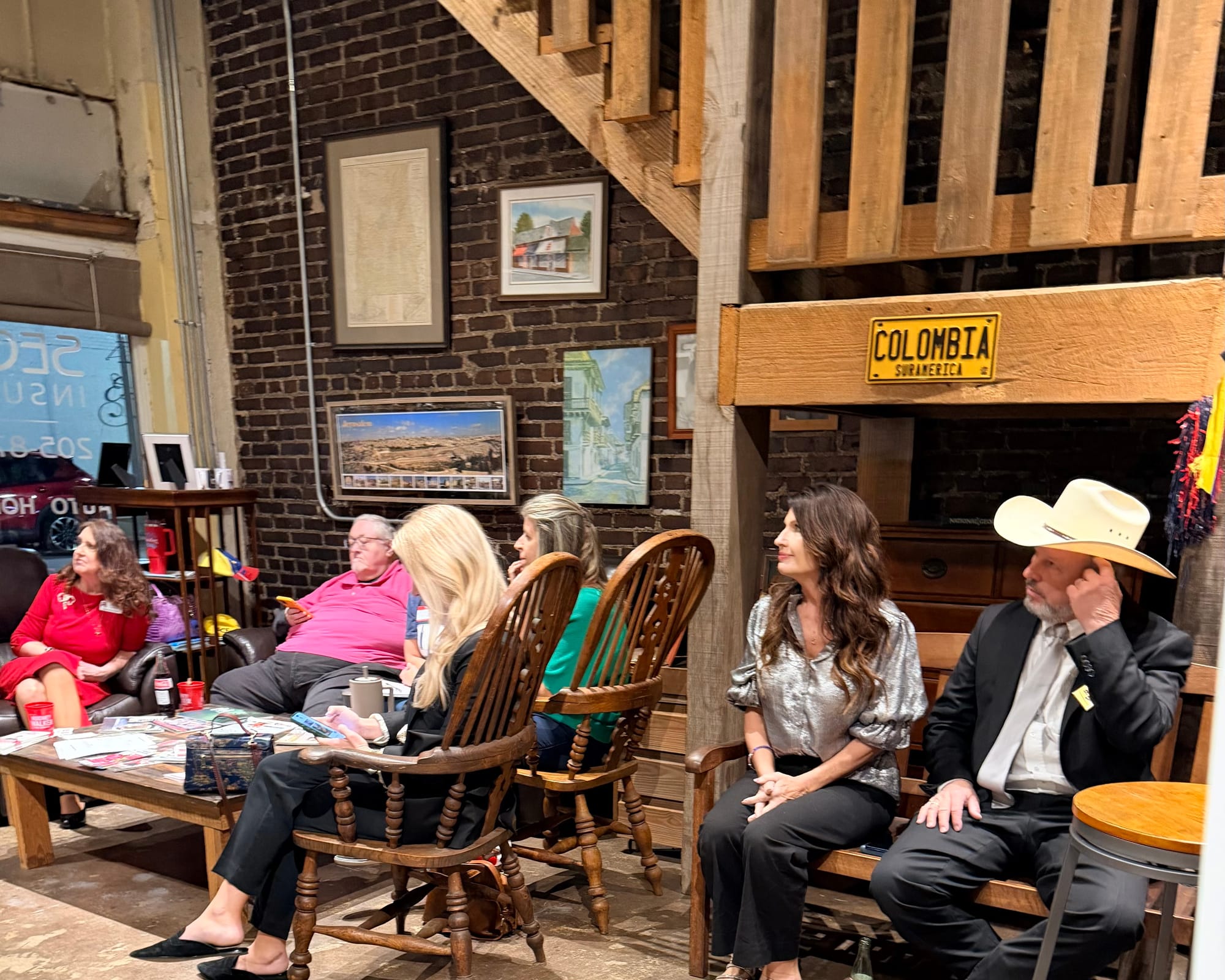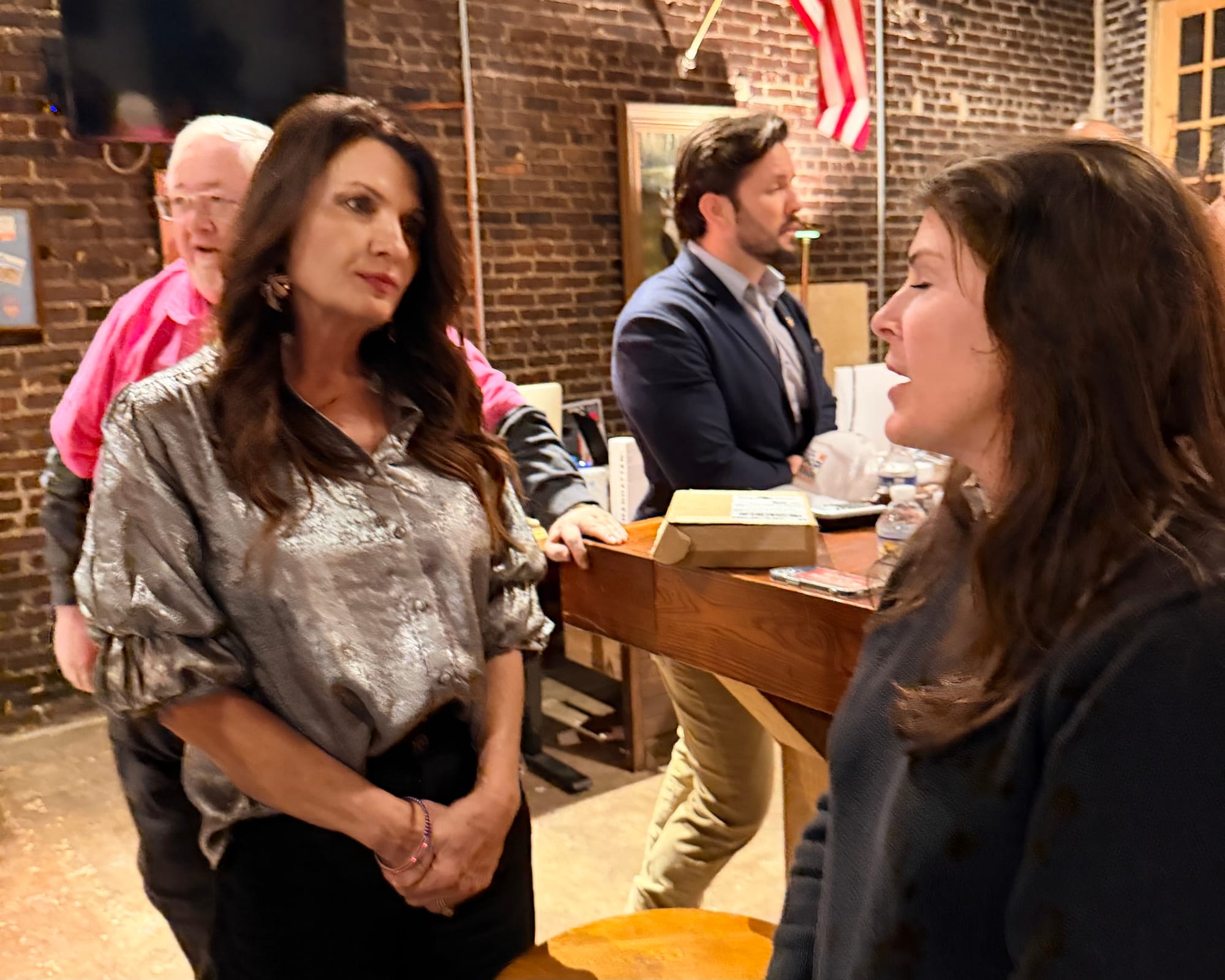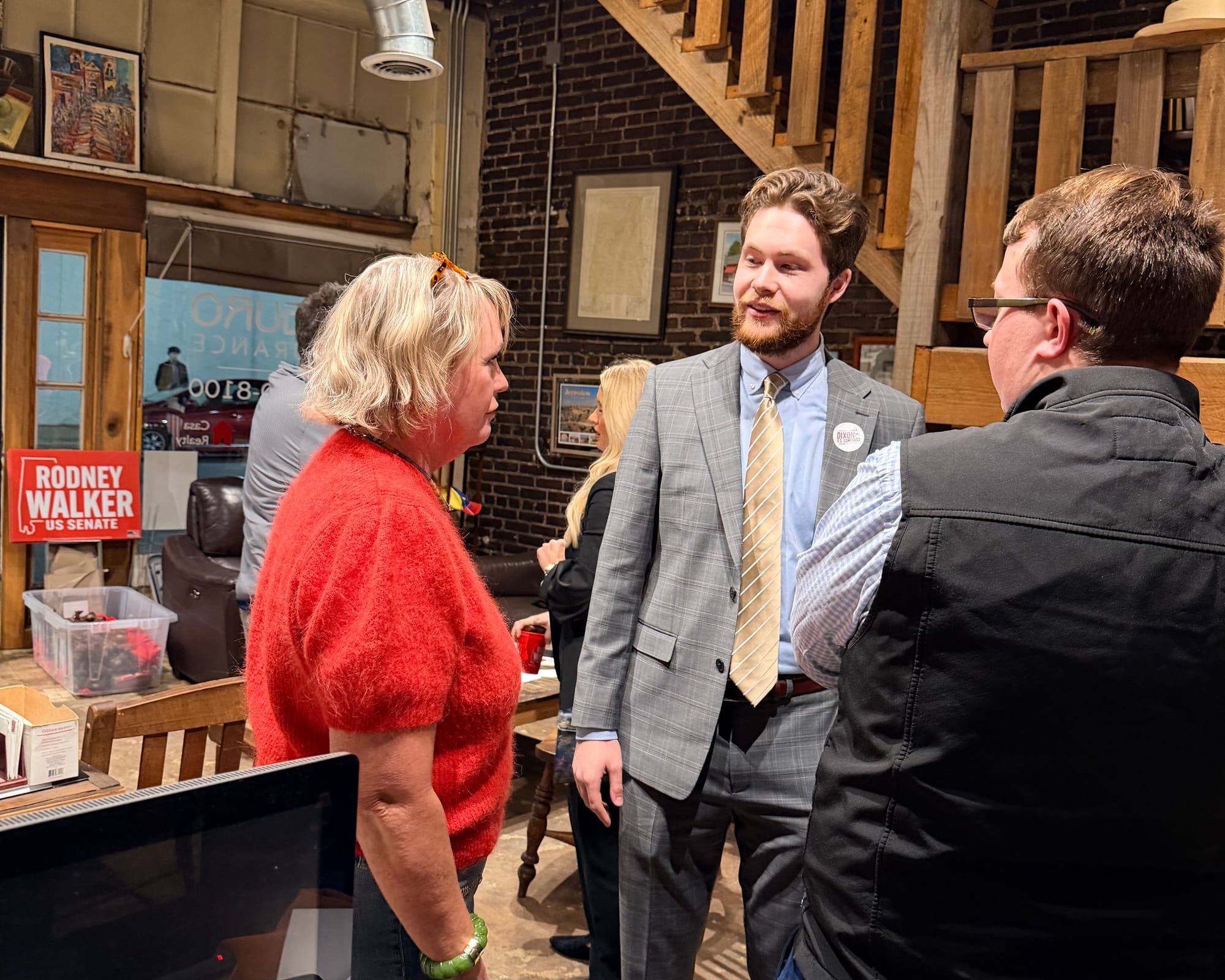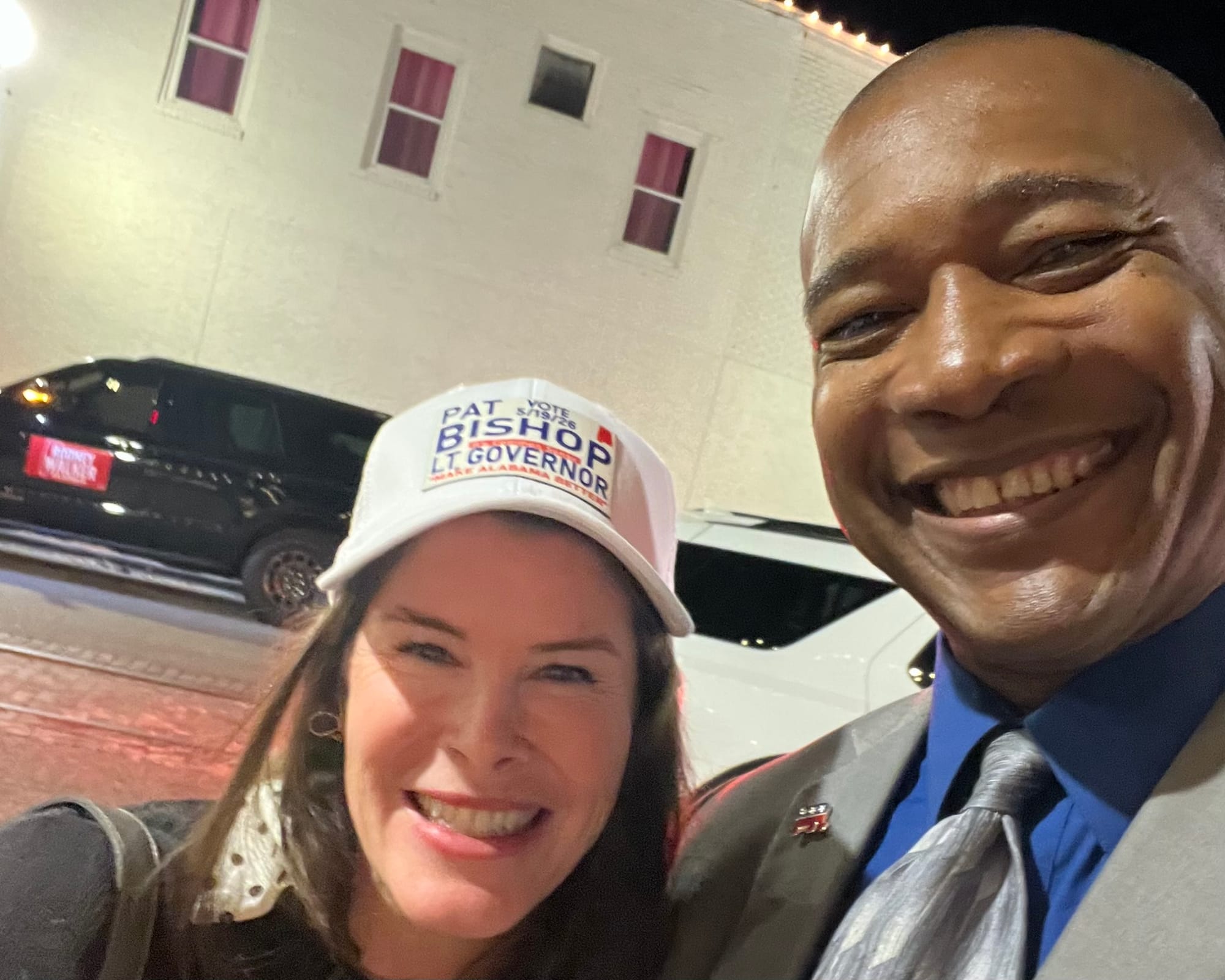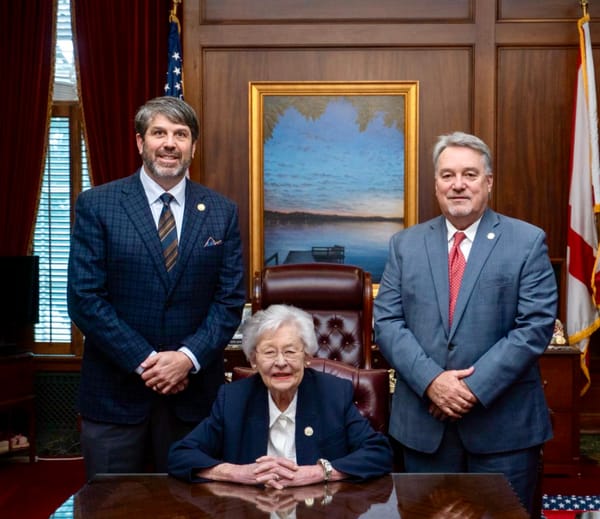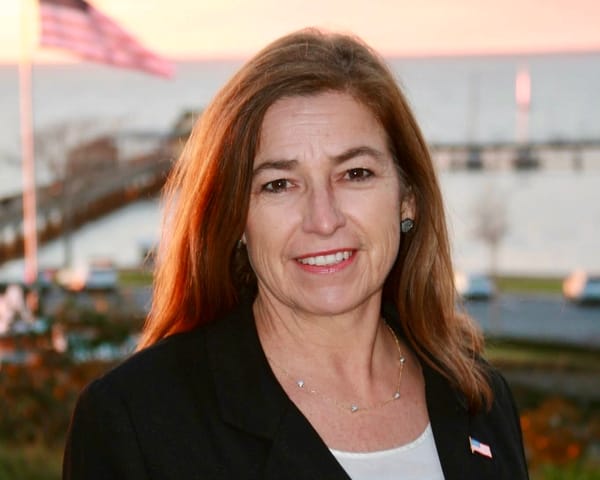Red Mountain Republican Women Host Five Candidates
Jared Hudson, Rodney Walker, Case Dixon, Pat Bishop, Brent Woodall address group in Homewood
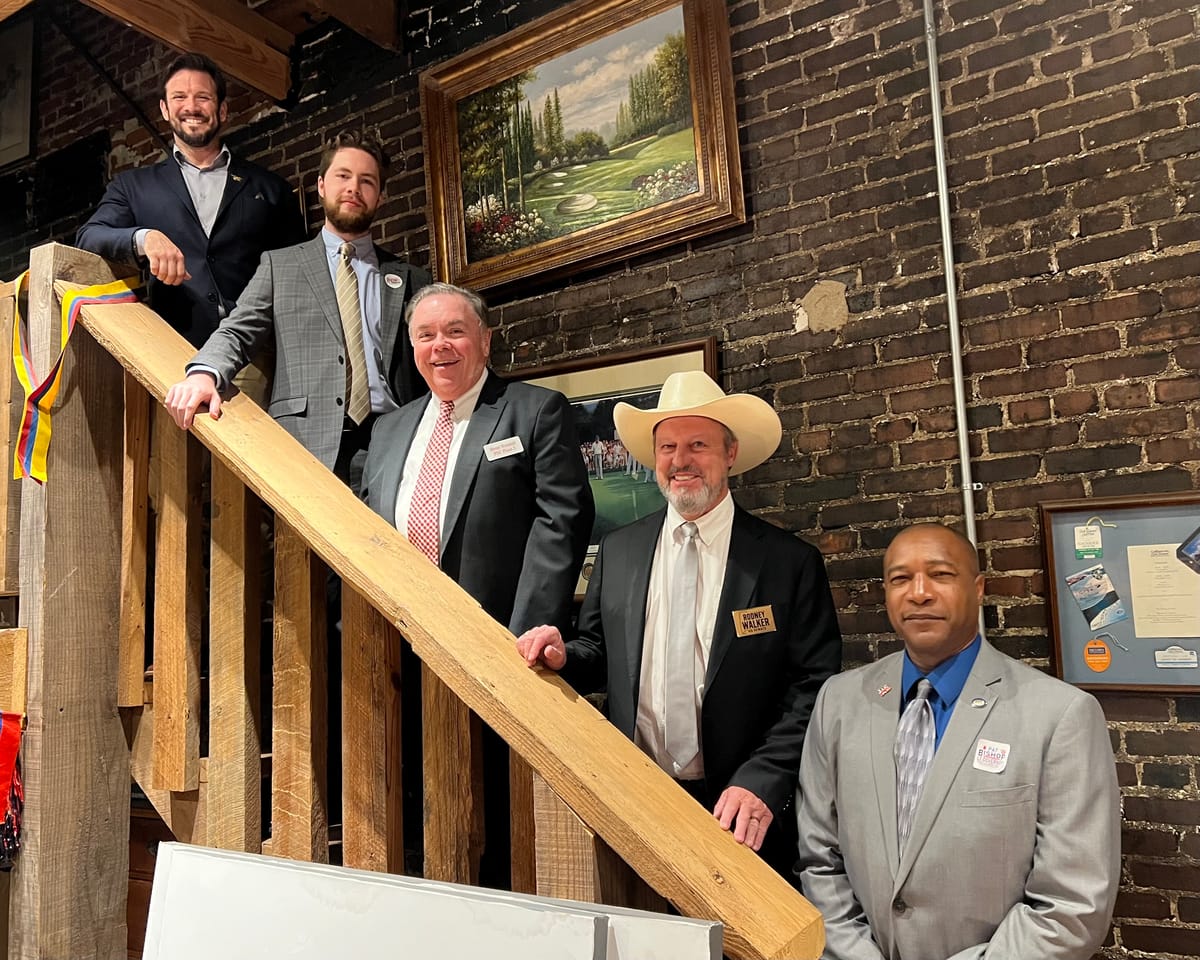
The Red Mountain Republican Women hosted five candidates for Statewide office Monday evening, Nov. 17 in the Edgewood neighborhood of Homewood.
Kristin Williams opened the being with the Pledge and Prayer. She then said that, even though the group only had its inaugural meeting last month, they already have members from several areas across the Over the Mountain region. One of the group's strong points, according to Williams, is that they aren’t tightly linked to a geographic area. She also pointed out that the group is actively looking for potential candidates in local races such as school boards and city councils.
Case Dixon, who is running for Congress in Alabama’s 6th District, spoke first. “I’m a Christian, a conservative, and a life-long Alabamian,” he said. “Running for office isn’t something you just decide to do. It’s a slow process,” and for him, it was the birth of his first daughter and his concern for the country she (and now her sister) will grow up in.
Dixon’s focus is on accountability: in spending, and from our elected representatives. He pointed out that Republicans talk tough on reigning in spending, but “when push comes to shove, so their actions match their words?” Dixon reminded the audience that, just while he’s been campaigning in this race, the debt has grown by $2 trillion dollars, from $36 to $38 trillion. “It’s a delayed tax on our kids,” he said.
Dixon spoke about his strong commitment to both a ban on stock trading—“it’s a major conflict of interest if we allow our leaders to enrich themselves”—and term limits. “Of there’s no one challenging an incumbent, there’s no other option, no accountability.”
When asked a question about how he would lower the deficit, Dixon replied that, with the debt as high as it is, “everything’s on the table.” He said that he endorsed the “penny plan,” and that cutting spending by 5% annually for five years would balance the budget in five years.
Brent Woodall, candidate for Public Service Commission (PSC) Place 2, began by saying that the current incumbent—the son of the previous seat holder, who resigned—was appointed very quickly to fill his father’s seat, despite having no experience for the office. “I have the experience.” Woodall said, “I spent three years as Chief of Staff to another member” of the PSC.
Woodall went on to describe his experience, as a Young Republican and as a conservative TV and radio host, as well as being a Trump delegate in 2016.
He spoke about the “hidden tax” collected by the PSC every year from those utilities the PSC regulates. The PSC is not funded by the State General Fund, he said. Rather, the PSC collects fees from utilities “for the privilege of being regulated,” and at the end of the fiscal year any surpluses are not returned to the rate payers, but sent into the General Fund. In 2021, this was $10 million, Woodall said, and between 2021 and 2024 was some $34 million. “I want to stop the hidden tax,” Woodall said, by having the utilities return it to their rate payers as a rate cut or refund. “I have the experience to do it,” he said.
U.S. Senate candidate Jared Hudson spoke next, saying the three things people need to know about him are that he’s a Christian, a family man, and a former Navy SEAL who was a founder of Covenant Rescue Group (CRG). Covenant’s mission is to fight human trafficking, and to work with other LEOs “to proactively teach them how to go after people who are trafficking kids.” Hudson is a sworn deputy, and through Covenant, has been involved in several high-profile cases recently.
Hudson also spoke about how “for too long, we’ve seen career politicians who want to climb the ladder” of political office, “but that’s not me.” He said that his focus in the Senate was going to be Alabama First, and that he intended to see that Alabama continues to be the Arsenal of America. “We need to bring every dollar of investment we can back to Alabama,” Hudson said, promising he would work hard to bring more investment and industry—and the jobs and taxes that come with them—to Alabama.
When Hudson was asked about his position on ending the filibuster, he replied that “it’s basically a non-issue right now,” as there are only 27 votes to end it. He went on to say that he understood the rationale behind it, but was concerned that the only way to push through the President's agenda immediately afterward would be to go "scorched earth” on the Democrats. “I’m concerned about what would be the result when the tables are turned, as they eventually will be,” Hudson said. “ I think we need to look carefully at the third- and fourth-order effects of ending it,” he said.
Retired Major Pat Bishop opened by saying “I’m your next Lt. Governor because I claim it!” He stated that he was a Democrat in the past, but during his time in the service—especially in Mogadishu, when Bill Clinton refused to give the military the support they needed, as shown in the film ‘Blackhawk Down’—he changed his party affiliation. “We lost 18 men because Clinton said no,” he said, which moved him to become a Republican.
“If you want a politician, I am not your candidate,” Bishop went on. He stated that as Lt. Gov, he would “walk across the aisle and engage the other side” to find real, common-sense solutions to problems.
Bishop said that his three main issues are Veterans (“we don’t take care of our Veterans, and we can do better”), Education (“we can’t recruit math or special ed teachers”) and Crime (“I believe in being tough on crime, but I also believe in common sense”). He said that the problems in Alabama’s prison system are largely the result of a lack of oversight and effective action by the Department of Corrections, and “we can do better.”
“We have politicians, not warriors,” Bishop said, and he would bring a problem-focused military mindset to the office of Lt. Governor. He also said that he supported an education lottery, asking “why are we sending Georgia kids to school?”
“You need to send a warrior to Montgomery that won’t sell his soul for votes,” Bishop concluded.
Rodney Walker, who is also running for U.S. Senate pointed out that there were no career politicians in the room. He began by saying that he strongly supports term limits, “two terms for Senators and it’ll be somebody else’s time to take over. Walker said that he’s signed the term limits pledge, and intends to stand by that.
Walker then said “we have got to balance the budget,” and that “we had the opportunity of a lifetime with DOGE,” but very little came of that.
One of Walker’s key issues will be health care, especially for our Veterans and in rural areas. He related that he had flown medical helicopters, and had seen lives both saved and lost. “Medicare is broken,” he said, speaking about the rural/urban funding disparity that is causing so many of Alabama’s rural hospitals to either close or become “rural emergency hospitals.” These rural facilities would only be allowed to keep people for 24 hours before being forced to ship them to larger facilities far away.
“Immigration is broken,” Walker said, “there should not be open borders. The last immigration fix was in 1985 under Ronald Reagan,” he said, before acknowledging that some fields like agriculture needed immigrant labor. He proposed having an immigration office in every county, to ensure that only legal immigrants were working, and paying taxes.
Finally, Walker said that “I want to protect your food supply and your property rights.” As a rancher himself, he understands the risk of importing beef from Argentina and the countries where “they don’t have the same USDA certifications we do,” which puts consumers at risk for food-borne diseases. Walker also is concerned that “2,198,000 acres of land in Alabama are owned by foreign actors—that’s our food supply,” and that, as Senator, this would be a priority for him.
The meeting ended with an informal meet and greet session with the candidates and attendees. (Images below—submitted)

